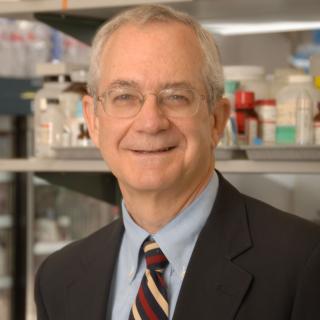
David A. Davis, Ph.D.
- Center for Cancer Research
- National Cancer Institute
- Building 10, Room 5A25
- Bethesda, MD 20892-1868
- 240-858-3255
- davisdav@mail.nih.gov
RESEARCH SUMMARY
Dr. Davis’ current projects involve the development of novel therapies for the treatment of AIDS Malignancies. He currently studies oncoviruses and the treatment of their related diseases with immunomodulatory drugs . Previous work involved studies on regulation of HIV-1 protease and protease inhibitors. As a staff scientist in the Yarchoan lab, Dr. Davis mentors postdoctoral fellows as well as junior scientists in the area of viral oncology. The laboratory has a translational research focus that allows for cross-talk between the clinic and lab aiding in the development of new antiviral and anticancer therapies.
Areas of Expertise

David A. Davis, Ph.D.
Research
I have been a Staff Scientist in the National Cancer Institute, NIH in the HIV and AIDS Malignancy Branch (HAMB) since 1996. I currently oversee the laboratory projects carried out by PostBacs and the Post Docs in the lab as well as carry out my own research. Our lab has been extensively studying the role of hypoxia and hypoxia response elements in human herpesvirus 8 (also known as KSHV) activation as it relates to malignancies associated with AIDS. We are currently studying the use of thalidomide and analogues that can affect the immune receptors present on infected cells. I previously investigated the role of the HIV-1 protease in the HIV-1 viral life cycle and worked on protease inhibitor/drug development. I specialize in protein biochemistry, enzymology, oxidative stress and RP-HPLC/mass spectrometry. Current projects involve understanding the mechanism by which oncogenic viruses modulate the immune molecules of infected cells and the discovery and development of drugs to thwart these effects.
Publications
Thioltransferase (glutaredoxin) is detected within HIV-1 and can regulate the activity of glutathionylated HIV-1 protease in vitro
Hypoxia induces lytic replication of Kaposi sarcoma-associated herpesvirus
Hypoxia enhances the phosphorylation and cytotoxicity of ganciclovir and zidovudine in Kaposi"s sarcoma-associated herpesvirus infected cells
Activation of virus uptake through induction of macropinocytosis with a novel polymerizing peptide
Reversible oxidative modification as a mechanism for regulating retroviral protease dimerization and activation
Biography

David A. Davis, Ph.D.
Masters of Science, Biochemistry-University of Vermont 1987 PhD, Biochemistry-Purdue University 1992 PostDoc 1992-1995, NHLBI, NIH Staff Scientist-1996-present
